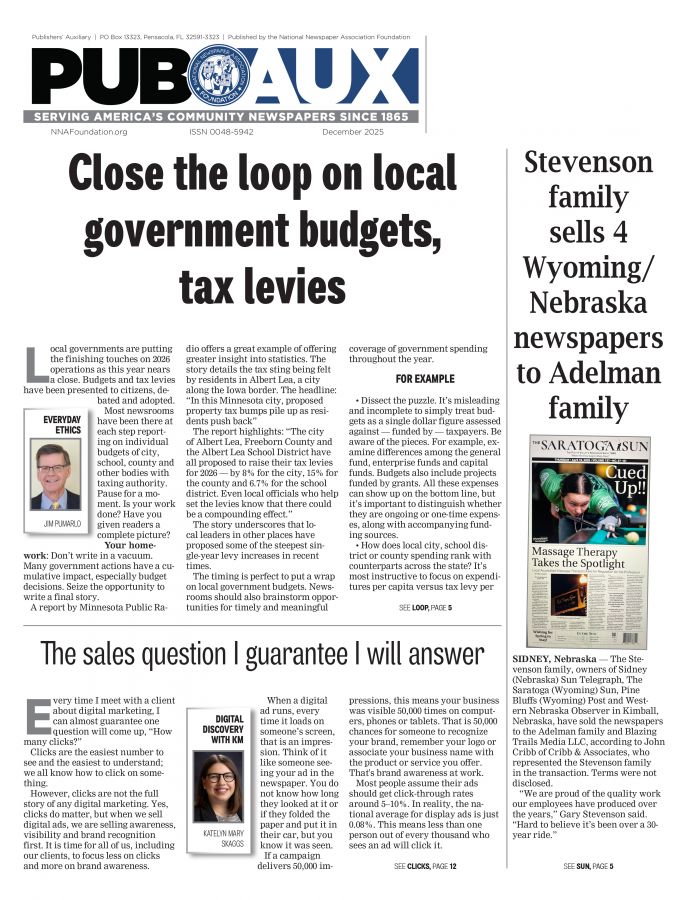The biggest threat to democracy might be the loss of local newspapers
Jun 14, 2018
By Lata Nott
Inside the First Amendment
If you're reading this column in your local newspaper, congratulations! Just by skimming your eyeballs over this page, whether it's in print or online, you're doing a vital service for your hometown, and for democracy as a whole. (Go ahead and take the rest of the day off.)
It's no secret that local journalism is in trouble, and has been for quite some time. According to a 2017 report from the Pew Research Center, the weekday circulation for U.S. daily newspapers has been on the decline for twenty-eight consecutive years. The Bureau of Labor Statistics notes that between 1990 and 2016, the number of newspaper employees in the U.S. declined from 456,300 to 183,000.
Despite the vitriol that publications like The New York Times and The Washington Post attract from the Trump administration, it's not the national news media outlets that we need to worry about. Their subscription numbers are on the rise. It's the smaller newspapers that serve local markets that are suffering. Many are chronically understaffed. Some have shuttered altogether. A map created by the Columbia Journalism Review reveals that communities all across the United States have been "left with no daily local news outlet at all."
What's the cause of all these news deserts? It's the internet (to paraphrase the Simpsons, "the cause of, and solution to, all of life's problems"). Local newspapers lost print subscriptions when people started reading the news online (and came to expect it to be free). They lost another major source of revenue when their classified sections were supplanted by Craigslist. Their digital editions have to compete for eyeballs and advertising revenue with websites that traffic in national scandals, political commentary and cat videos.
This isn't just a financial hardship for your local newspaper. According to a new paper co-authored by three professors of finance, it's a financial hardship for your entire town. The researchers looked at cities that lost newspapers between 1996 and 2015, and found that within three years of a newspaper's closure, the costs for municipal bonds and revenue bonds increased for these cities. Here's how they explained the connection: "Revenue bonds are commonly issued to finance local projects such as schools and hospitals, and are backed by the revenues generated by those projects...[T]hese bonds are rarely regulated by the state government. A local newspaper provides an ideal monitoring agent for these revenue-generating projects, as mismanaged projects can be exposed by investigative reporters employed by the local newspaper. When a newspaper closes, this monitoring mechanism also ceases to exist, leading to a greater risk that the cash flows generated by these projects will be mismanaged."
In other words, local newspapers provide a public good, one that can be measured in dollars and cents. The problem is that today's marketplace doesn't really reward them for this. A listicle about amazing dogs will always generate more advertising revenue than coverage of a city finance committee meeting. (You know which one you're more likely to click on. Just admit it to yourself and move on.) But the latter article could actually prevent municipal corruption. Even if no one reads it, public officials are more likely to behave ethically when they know they're being monitored. As citizens, we tend to take this effect for granted. Maybe we need to stop thinking about our local newspapers as businesses that need to turn a profit and start thinking about them as utilities that we need to finance for our own good.
Lata Nott is executive director of the First Amendment Center of the Freedom Forum Institute. Contact her via email at lnott@freedomforum.org, or follow her on Twitter at @LataNott.







